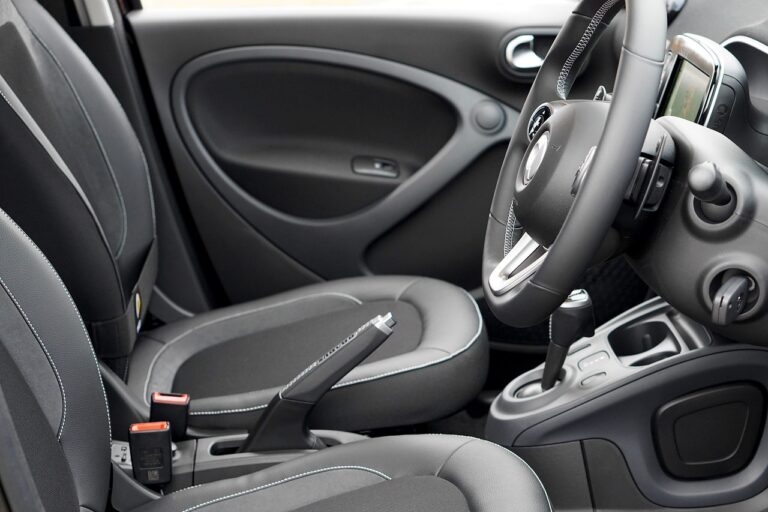The Role of Machine Learning in Adaptive Car Audio Systems
cricbet.99, sky1exchange, cricbet99 reddy anna: Machine learning is revolutionizing the world of technology in various industries, and the automotive sector is no exception. One area where machine learning is making significant strides is in adaptive car audio systems. These systems use advanced algorithms to analyze data and adjust audio settings automatically to provide the best listening experience for drivers and passengers. In this blog post, we will delve into the role of machine learning in adaptive car audio systems and explore how these technologies are transforming the driving experience.
Understanding Adaptive Car Audio Systems
Adaptive car audio systems are designed to tailor the sound output in a vehicle based on factors such as the number of passengers, road conditions, and ambient noise levels. These systems use a combination of sensors, microphones, and machine learning algorithms to monitor the car’s environment and make real-time adjustments to the audio settings.
For example, if the car is traveling at high speeds on a noisy highway, the adaptive audio system can increase the volume and adjust the equalizer settings to ensure that the music or podcast being played is clearly audible over the road noise. Conversely, if the car is stopped at a traffic light in a quiet neighborhood, the system can decrease the volume and fine-tune the soundstage to create a more immersive listening experience.
Role of Machine Learning in Adaptive Car Audio Systems
Machine learning plays a crucial role in the development and implementation of adaptive car audio systems. These systems rely on sophisticated algorithms that can learn from data and make intelligent decisions to optimize the audio output in real-time. Here are some key ways in which machine learning enhances adaptive car audio systems:
1. Data Analysis: Machine learning algorithms can process large volumes of data from the car’s sensors and microphones to identify patterns and trends in the audio environment. By analyzing this data, the system can determine the optimal audio settings for different driving conditions.
2. Personalization: Machine learning can also be used to create personalized audio profiles for individual drivers and passengers. By analyzing listening habits, preferences, and hearing profiles, the system can tailor the audio output to suit each person’s unique tastes and needs.
3. Adaptive Control: Machine learning algorithms can continuously monitor and adjust the audio settings in real-time based on changing conditions inside and outside the vehicle. This adaptive control ensures that the audio quality remains consistent and optimized at all times.
4. Predictive Analytics: Machine learning can be used to predict future audio requirements based on historical data and user behavior. By anticipating changes in the driving environment, the system can proactively adjust the audio settings to provide a seamless listening experience.
5. Feedback Loops: Machine learning algorithms can incorporate feedback loops to learn from user interactions and improve the audio output over time. By gathering feedback on the system’s performance and making adjustments accordingly, the adaptive car audio system can continuously enhance its capabilities.
6. Auto-Calibration: Machine learning can automate the calibration process of the car’s audio system, ensuring that the sound output is customized to the vehicle’s acoustics and the listener’s preferences. This auto-calibration feature simplifies the setup process and ensures optimal audio quality without manual intervention.
By leveraging the power of machine learning, adaptive car audio systems can deliver a truly immersive and personalized listening experience for drivers and passengers. These advanced technologies are redefining the way we interact with audio in vehicles and paving the way for a new era of smart automotive technology.
FAQs
1. How does machine learning improve the audio quality in adaptive car audio systems?
Machine learning algorithms analyze data from sensors and microphones to adjust audio settings in real-time based on driving conditions and user preferences, resulting in optimized sound output.
2. Can adaptive car audio systems handle multiple passengers with different audio preferences?
Yes, machine learning enables adaptive car audio systems to create personalized audio profiles for individual passengers, ensuring that each person’s preferences are met.
3. How do adaptive car audio systems use predictive analytics to enhance the listening experience?
By analyzing historical data and user behavior, machine learning algorithms can predict future audio requirements and proactively adjust the audio settings to deliver a seamless listening experience.
4. Is auto-calibration feature in adaptive car audio systems user-friendly?
Yes, the auto-calibration feature automates the setup process, making it easy for users to customize the audio output to their preferences without manual intervention.
In conclusion, machine learning is driving innovation in adaptive car audio systems, providing users with a personalized and immersive listening experience on the road. As these technologies continue to evolve, we can expect even more advanced features and capabilities that will transform the way we enjoy audio in our vehicles.







